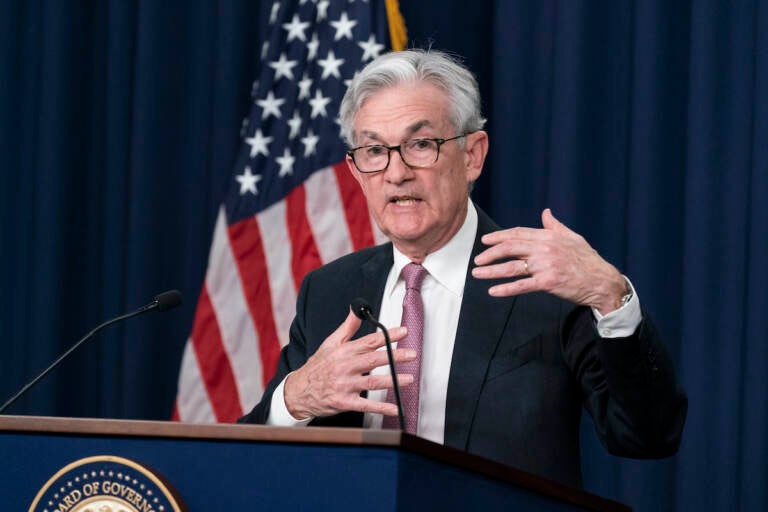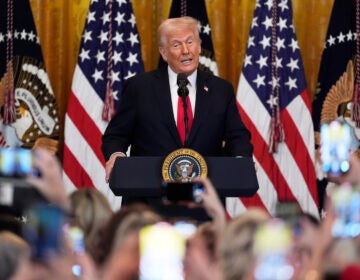Fed attacks inflation with its largest rate hike since 1994
The move the Fed announced after its latest policy meeting will increase its benchmark short-term rate, which affects many consumer and business loans.

File photo: Federal Reserve Board Chair Jerome Powell speaks during a news conference at the Federal Reserve, Wednesday, May 4, 2022 in Washington. (AP Photo/Alex Brandon, File)
The Federal Reserve on Wednesday intensified its drive to tame high inflation by raising its key interest rate by three-quarters of a point — its largest hike in nearly three decades — and signaling more large rate increases to come that would raise the risk of another recession.
The move the Fed announced after its latest policy meeting will increase its benchmark short-term rate, which affects many consumer and business loans, to a range of 1.5% to 1.75%.
The central bank is ramping up its drive to tighten credit and slow growth with inflation having reached a four-decade high of 8.6%, spreading to more areas of the economy and showing no sign of slowing. Americans are also starting to expect high inflation to last longer than they had before. This sentiment could embed an inflationary psychology in the economy that would make it harder to bring inflation back to the Fed’s 2% target.
The Fed’s three-quarter-point rate increase exceeds the half-point hike that Chair Jerome Powell had previously suggested was likely to be announced this week. The Fed’s decision to impose a rate hike as large as it did Wednesday was an acknowledgment that it’s struggling to curb the pace and persistence of inflation, which has been worsened by Russia’s war against Ukraine and its effects on energy prices.
Borrowing costs have already risen sharply across much of the U.S. economy in response to the Fed’s moves, with the average 30-year fixed mortgage rate topping 6%, its highest level since before the 2008 financial crisis, up from just 3% at the start of the year. The yield on the 2-year Treasury note, a benchmark for corporate borrowing, has jumped to 3.3%, its highest level since 2007.
Even if a recession can be avoided, economists say it’s almost inevitable that the Fed will have to inflict some pain — most likely in the form of higher unemployment — as the price of defeating chronically high inflation.
WHYY is your source for fact-based, in-depth journalism and information. As a nonprofit organization, we rely on financial support from readers like you. Please give today.





